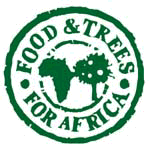Gardens for hunger & healing
Philippa Garson
When volunteers from Thuthukani clinic in Ivory Park, north of Johannesburg, began doing home visits to administer medicine to people suffering from Aids and TB, they found that most of them had no food.
The volunteers then came up with the idea of a food garden, and sought assistance from the City of Johannesburg’s Social Development Services for materials and technical support.
 Last year, Food and Trees for Africa came on board, providing permaculture training for the food garden. Funding was supplied by the New Zealand High Commission.
Last year, Food and Trees for Africa came on board, providing permaculture training for the food garden. Funding was supplied by the New Zealand High Commission.
Now Thuthukani clinic has a thriving garden with vegetables in abundance and plenty of fruit trees. The garden yields enough food to feed hungry and sick patients and the volunteers themselves (who are all unemployed), and to sell to members of the Ivory Park community.
Says Ndaba Mkwanazi, an assistant social developer with the City of Johannesburg’s Region Two: “With the permaculture method taught by Food and Trees for Africa, we don’t use chemicals or insecticides. We use organic fertiliser. It is much safer for the ground, the environment and the produce itself, which has no added chemicals.”
The garden is progressing well. Herbs and fruit trees have been introduced, and a nursery to sell garden produce to the Ivory Park community is being developed.
According to Mkwanazi, “the volunteers are generating some income as a group. They have even opened a bank account. They are managing to sustain the project. They can buy the resources they need, such as seeds.”
Chairperson of the project Jane Nkosi, a previously unemployed Ivory Park resident and volunteer worker at Thuthukani clinic, is enthusiastic about the project’s successes: “This project is helping the community so much. The needy people are now getting something to eat.”
She too has reaped the benefits of having something worthwhile to do. While it’s not a properly paying job for her, it’s an activity that generates some income for her and her helpers when emergencies arise. There’s also plenty of healthy food for both volunteers and their patients to eat.
Nkosi says the volunteers now know enough to pass on their gardening skills as well as medications to the sick people they visit. “We’re encouraging our patients to make themselves gardens at home too.”
Many of the patients have now come on board to help. Instead of lying around depressed at home, they come to dirty their hands in the garden, where they get fresh air and gentle exercise.
Mkwanazi believes that the project, when fully developed, will be “a fine example of sustainable development”.
|



